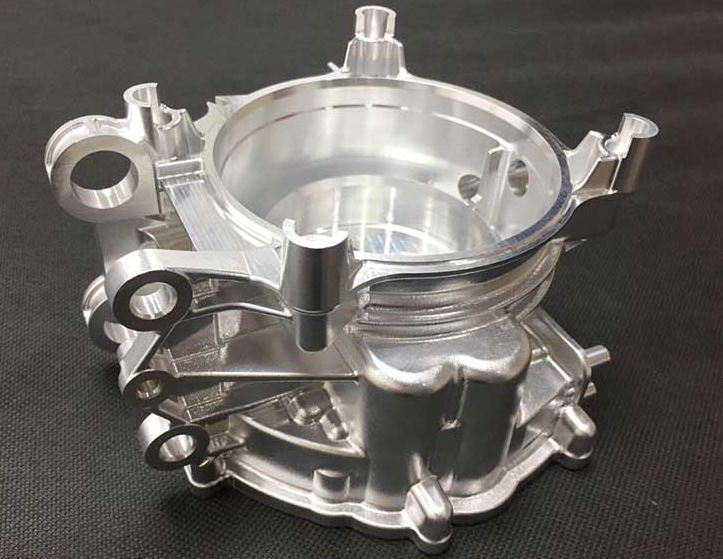Get This Report about Stahl Specialty Company
Table of ContentsThe Ultimate Guide To Stahl Specialty CompanyStahl Specialty Company Things To Know Before You Get ThisSee This Report about Stahl Specialty CompanyNot known Details About Stahl Specialty Company The 9-Second Trick For Stahl Specialty Company
Chemical Contrast of Cast Aluminum Alloys Silicon promotes castability by minimizing the alloy's melting temperature level and boosting fluidness throughout spreading. Furthermore, silicon contributes to the alloy's strength and use resistance, making it useful in applications where longevity is critical, such as automotive parts and engine parts.It also improves the machinability of the alloy, making it less complicated to process right into finished products. In this way, iron adds to the total workability of aluminum alloys. Copper enhances electrical conductivity, making it advantageous in electrical applications. It additionally enhances rust resistance and contributes to the alloy's total stamina.
Manganese adds to the strength of aluminum alloys and improves workability. Magnesium is a lightweight element that offers stamina and influence resistance to light weight aluminum alloys.
Zinc enhances the castability of light weight aluminum alloys and aids manage the solidification process during spreading. It enhances the alloy's stamina and hardness.
Some Known Details About Stahl Specialty Company
Since aluminum-silicon alloys have great casting residential properties, high gas homes, easy processes, and excellent deterioration resistance, aluminum-silicon alloys are most commonly made use of in the die-casting industry at home and abroad. At the same time, aluminum-silicon alloys are also relatively very early and widely identified alloys established and made use of in die-casting. After constant research and renovation, the majority of the present international mainstream aluminum-silicon alloys have been completed and are nothing greater than A356, A360, A380, ADC12, B390, and A413.
The main thermal conductivity, tensile toughness, yield toughness, and elongation differ. Select appropriate raw products according to the performance of the target product created. Amongst the above alloys, A356 has the highest thermal conductivity, and A380 and ADC12 have the least expensive. The tensile limit is the opposite. A360 has the most effective return toughness and the highest possible elongation rate.

Stahl Specialty Company for Dummies
In accuracy casting, 6063 is well-suited for applications where complex geometries and top quality surface finishes are vital. Instances include telecommunication rooms, where the alloy's superior formability permits smooth and visually pleasing layouts while keeping structural integrity. Likewise, in the Illumination Solutions market, precision-cast 6063 elements produce classy and reliable lights components that require elaborate shapes and great thermal efficiency.
(https://dc-washington.cataloxy.us/firms/stahlspecialty.com.htm)
The A360 exhibits superior elongation, making it excellent for complex and thin-walled elements. In accuracy casting applications, A360 is appropriate for markets such as Customer Going Here Electronic Devices, Telecommunication, and Power Tools.

In precision spreading, aluminum 413 radiates in the Customer Electronics and Power Equipment sectors. This alloy's superior corrosion resistance makes it a superb choice for outside applications, making certain long-lasting, long lasting items in the mentioned industries.
Getting The Stahl Specialty Company To Work
Once you have made a decision that the light weight aluminum pass away casting procedure appropriates for your project, an essential next step is choosing the most suitable alloy. The aluminum alloy you choose will substantially impact both the casting procedure and the buildings of the last item. As a result of this, you need to make your choice very carefully and take an educated technique.
Figuring out one of the most appropriate aluminum alloy for your application will indicate weighing a wide variety of features. These relative alloy attributes comply with the North American Pass Away Casting Association's guidelines, and we have actually separated them into two classifications. aluminum foundry. The first category addresses alloy features that affect the production procedure. The second covers features impacting the buildings of the end product.
The alloy you select for die spreading directly influences several facets of the casting procedure, like how simple the alloy is to collaborate with and if it is prone to casting flaws. Warm cracking, likewise referred to as solidification cracking, is a normal die spreading defect for aluminum alloys that can lead to inner or surface-level tears or cracks.
Get This Report on Stahl Specialty Company
Certain light weight aluminum alloys are a lot more at risk to hot fracturing than others, and your choice should consider this. An additional typical defect located in the die spreading of aluminum is die soldering, which is when the actors sticks to the die walls and makes ejection difficult. It can damage both the actors and the die, so you must seek alloys with high anti-soldering homes.
Rust resistance, which is already a notable attribute of light weight aluminum, can vary considerably from alloy to alloy and is an important particular to take into consideration depending upon the environmental problems your item will be exposed to. Wear resistance is an additional property generally sought in aluminum items and can separate some alloys.